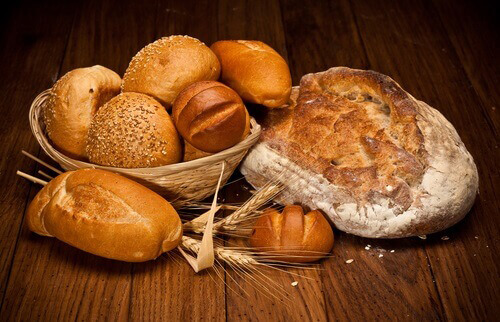Google’s food trends show that in recent years, people are very curious about gluten. There’s been a spike in searching for gluten-free bread, pasta, quinoa – you name it. Do these people know something you don’t? Should you eliminate gluten from your diet? First, take this simple test:
- Do you have celiac disease?
- Are you allergic to wheat?
If you answered yes to either of these two questions, talk to your doctor about reducing or eliminating gluten from your diet. It’s a very serious issue for people with celiac disease and wheat allergies. People with celiac disease represent about 1 percent or 1 in 100 people. Celiac disease is an inherited autoimmune disease that should be diagnosed by a doctor. People with allergy to wheat are even a smaller population, but the concern is significant.
But even with the small numbers of people with these medical conditions, people are jumping on restricted diets in droves — a recent study shows that nearly a million people without any intolerance follow a gluten free diet.
The number of Americans who say they are gluten-free has more than tripled from 2009 to 2014.
But the number of Americans who have celiac disease, or the inability to digest gluten, has stayed pretty much same.
This means more people are simply choosing not to eat gluten, even when there is no good scientific evidence to support cutting grains from their diets.
New research in the Journal of the American Medical Association shows that the percentage of Americans practicing a gluten-free diet rose from 0.52 percent in 2009 to 1.69 percent in 2014. But the percentage of Americans with celiac disease actually declined slightly from 0.70 percent in 2009 to 0.58 percent in 2014.
For a dramatic look at the increased interest, watch the purple overtake the map over a number of years in this chart from the most Googled diets in every city.
Why has interest spiked?
First and foremost, people are very interested in their health overall – that is not a new thing. But as for the spike in interest about gluten, there are no doubt many reasons but here are a few:
- Many people think that being gluten-free is healthier or will lead to weight loss. Many nutritionists and food experts disagree.
- Many people think that gluten is an unnatural, man-made chemical additive. Not so, it is a natural protein found in foods.
- Many people are swayed by celebrities, athletes and marketing that tout the benefits of gluten-free diets. Plus, the prevalence of gluten-free foods in supermarket aisles and menus lead many to conclude that where there’s smoke, there’s fire. Is there something to it? Yes, if you have celiac disease, wheat allergy or gluten sensitivity. Otherwise, probably not.
We aren’t big fans of dietary or health fads, they tend to come and go. Where there is hype, there should be skepticism. Unless there is a medical reason for dietary restrictions, we favor a more measured, balanced approach to nutrition, plus a healthy dose of daily exercise.
Here are a few articles that tackle some of the gluten-free myths and realities:
Nutritionist Stacy Pelekhaty from the University of Maryland Medical System tackles some of the myths and realities of gluten for the Baltimore Sun:
Demystifying the gluten-free diet
If a food is labeled gluten-free, does that mean it’s healthier?
Maybe, but probably not; it all depends on what the food is. Gluten-free cupcakes, pastries, breads, etc. are no healthier for you than their gluten-containing counterparts. Since gluten contributes to the texture of those products, you may find gluten-free options less satisfying, which can lead to overeating. Also, gluten-free baked goods tend to be more heavily processed, higher in refined carbohydrates and lower in vitamins, minerals and fiber. Many naturally gluten-free products like fruits, vegetables, lean meats, fatty fish, plain yogurt, nuts and beans are very healthy choices. Oats may or may not be gluten- free depending on how they’re processed, but whether or not they’re gluten-free doesn’t impact their health benefits.
Senior health correspondent Jullia Belluz of Vox offers The gluten-free craze is out of hand. Here are 8 facts to counter the madness.
Researchers who study gluten allergies say people should avoid going gluten-free unless it’s absolutely necessary
Because of the potential harm — and unknown benefit — of recreational gluten avoidance, researchers who work in this area advise people think twice before going gluten free (unless, of course, they have celiac disease or a diagnosed allergy).
“People should avoid the self-diagnosis of gluten sensitivity since a gluten-free diet can be also responsible for negative health effects,” Dr. Volta wrote in an email. This diet, he added, can “favor nutrient deficiency” and throw off the gut’s microflora — especially when dieters just replace gluten-containing foods with fats and proteins. “An excessive consumption of dietary products, which are notoriously poor in fibers and vitamins, but rich in lipids and at a high caloric content, can raise metabolic abnormalities.”
More on gluten
Against the Grain: Should you go gluten-free? Michael Specter, New York Times
For a more scholarly look at some of the research, see Should We All Go Gluten-Free? by William F. Balistreri, MD in Medscape.

